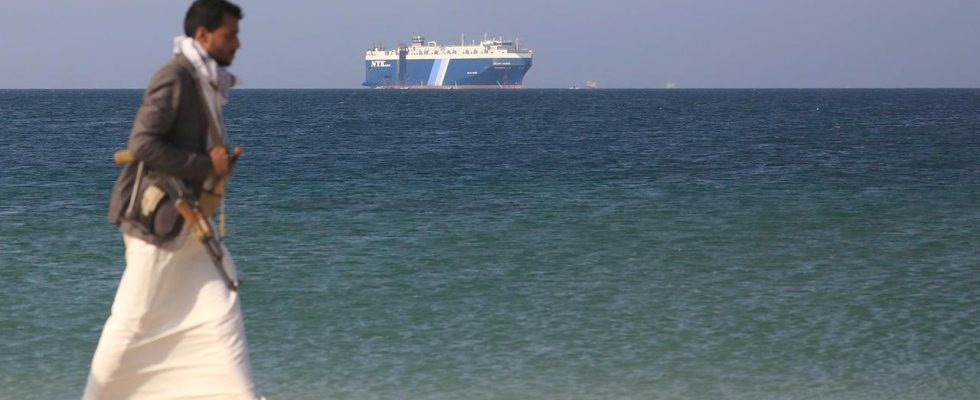The Houthi militia in Yemen has a powerful backer in the background: Iran. They are part of his “Axis of Resistance.” The attacks on ships in the Red Sea strengthen Tehran’s position.
A Palestinian reporter reports on Iranian state television from Gaza how much the people there were happy about the attacks by the Houthi militia. And former Foreign Minister Ali Akbar Velayati publicly praises the Houthis’ fighting spirit.
Tehran now wants to leave no doubt that it stands behind the Yemeni militia. The close relationship between the two sides – even at the highest level – has never been a secret, says Magdalena Kirchner from the Friedrich Ebert Foundation, which is responsible for Yemen: “There have also been meetings between the Houthi leadership and the revolutionary leader, of which there are also pictures Both parties also have an interest in their alliance being known.”
The ideology connects both. The slogans “Death to the USA, Death to Israel,” which are part of every pro-regime demonstration in Iran, are also the Houthis’ motto.
It started with Khomeni
The good relations go back to the time shortly after the Islamic Revolution, says Yemeni-Swiss political scientist Elham Manea: “The founders of the Houthi movement were and are fascinated by Khomeni’s political project to this day.”
The relationship began in mid-1980. “It was more cultural relations, but the political and military relations between Iran and the Houthis became really strong after the Arab uprisings.”
Proxy war between Saudi Arabia and Iran
When the civil war broke out in Yemen in 2014, it became clear how closely both sides worked together. It is a proxy war between Saudi Arabia and Iran. He supports the Houthis: “Intercepted deliveries document the delivery of weapons, the delivery of technology, especially for the development of missiles and drones, like the ones we are now seeing being used,” reports Kirchner. And there are also reports that Iranian military advisors have been active in the north of Yemen for several years.
However, the Houthis have emancipated themselves in recent years, at least when it comes to arms deliveries. For example, many rockets now have the “Made in Yemen” sign on them. Only the technological basis still comes from Iran, explains Kirchner. Nevertheless, Iran is sending a signal through its attacks in the Red Sea that its Yemeni allies can also hit Israeli targets.
Rebels: Not a tool of Iran
The rebels do not want to be seen as a tool of Iran, but as a national organization in Yemen. How close the two actually are can only be speculated on, says Middle East expert Kirchner: “It has always been advantageous for Iran that the relationship between the two was accepted but not so clearly documented.” This also allowed Iran to “project power and influence into the Arab Gulf, so to speak, without daring to directly confront Saudi Arabia.”
A similar system can now also be assumed in the conflict in the Red Sea or around Gaza. It is unlikely that Iran ordered the Houthis to carry out the attacks and that it would become more involved.
Iran as a political winner
Kirchner sees Iran as a winner of this crisis, not economically or militarily, but above all politically: “When it comes to exerting influence on the Houthis, many Western states will also knock on Iran’s door. Simply because of this connection.” This means that Iran’s negotiating position has now increased again, so to speak, as a result of the Houthi’s policy, “without there being a major risk for Iran that it itself has to take action now and can thereby make itself vulnerable.”
According to Kirchner, its influence on the Houthis could strengthen Iran as a kind of mediator and make it a contact for the West. However, only as long as the situation in the Red Sea does not escalate.
Karin Senz, ARD Istanbul, tagesschau, December 19, 2023 10:46 p.m

